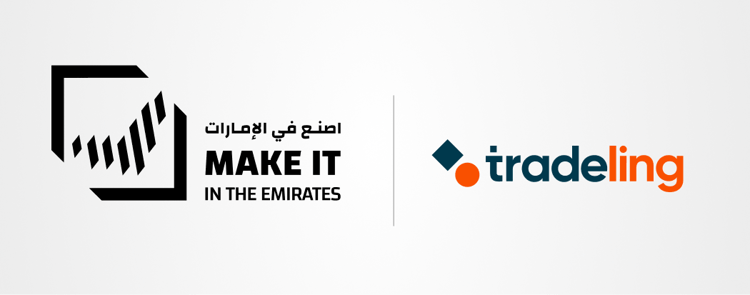
The UAE’s industrial strategy has renewed its focus on local manufacturing and trade infrastructure through initiatives like the Make It In The Emirates (MIITE) programme, aimed at driving demand for UAE-made goods in-store and online.
This aligns with national goals around economic diversification, import substitution, and sustainable production. Within this framework, procurement is being repositioned as a lever for industrial growth rather than mere cost control. Tradeling’s collaboration with the Ministry of Industry and Advanced Technology (MoIAT) reflects this shift, giving buyers a more structured path to UAE-made products. A joint MIITE campaign will run for one month from 7 May, following an agreement signed at ADNOC Headquarters in April. This article outlines how the collaboration works, where it creates value, and what buyers and suppliers should expect.
A Strategic Alliance with a Clear Mandate
Through this agreement, Tradeling and MoIAT bring greater commercial visibility to UAE-made products by embedding them directly into procurement workflows. It was signed on 21 April and witnessed by H.E. Dr. Sultan Ahmed Al Jaber, confirming alignment with the UAE’s broader economic development plans. Rather than building new infrastructure, the MIITE campaign integrates verified UAE-made products directly into Tradeling’s B2B procurement channels. This includes digital listings, structured promotions, and adjusted search logic. The focus is on making locally sourced products commercially competitive without requiring buyers to alter procurement standards.
Buyers already using Tradeling’s tools can access dedicated categories tied to the campaign without altering their workflows. Policy meets practicality through product tagging, dedicated homepage placements, and boosted visibility on search results pages, making UAE-made goods easier to find, compare, and purchase at scale.
Smarter Procurement As A Driver For Domestic Growth
Procurement tends to follow the path of least resistance. In most cases, that means sourcing from established overseas suppliers with predictable pricing and fulfilment. The current campaign introduces a frictionless way to shift that default by tagging UAE-manufactured products and making them directly accessible within existing buyer workflows.
According to the Ministry of Industry and Advanced Technology (MoIAT), the Make It In The Emirates initiative had, by 2023, introduced a total of AED 120 billion in procurement opportunities for local manufacturing. Additionally, over 1,400 products had been identified for local production across 11 sectors, and more than 52% of targeted offtake agreements (worth AED 62 billion) had already been secured.
The current collaboration with Tradeling applies similar procurement logic to the above to privately managed supply chains. By integrating verified UAE-made products directly into the platform, Tradeling enables buyers to identify qualifying items without changing internal systems. Procurement teams can meet national sourcing goals using existing workflows, without altering internal policies, supplier systems, or compliance checklists. The outcome is commercially sound procurement that also reinforces domestic production targets.
Bringing Long-Term Value To Buyers And Suppliers
Procurement efficiency is often linked to scale and reliability. When domestic suppliers are integrated into large-scale B2B platforms, they gain the visibility required to compete on both fronts. This benefits buyers who need responsive partners and streamlined order fulfilment. Tradeling’s role in the campaign is to create technical parity between local producers and international vendors who already operate at scale within the system.
The MIITE campaign is a one month campaign, with supplier data, campaign filters, and homepage placements remaining active even after the official end date. Supplier data will remain integrated. Search logic will continue to prioritise verified sources.
The Value Of Consistent Visibility
The value of the MIITE campaign lies in how it brings locally manufactured goods into clearer view, without requiring buyers to leave familiar systems or sellers to compromise on standards. For buyers, it enables commercially sound decisions that align with procurement objectives while supporting broader policy goals. Sellers benefit from increased visibility in a structured, competitive space, allowing UAE-based producers to secure larger contracts and build delivery capacity over time. At the market level, this shift reinforces domestic supply chains by turning localisation into a commercially viable and scalable choice.
Rather than adding another layer to procurement, the campaign shows how existing infrastructure can serve national objectives without burdening buyers or suppliers. It reflects a broader rethinking of how digital platforms, procurement logic, and industrial policy intersect, and how, with the right structure, those interests can reinforce one another instead of pulling in different directions.
If your business relies on consistent, scalable procurement, now is the time to assess where UAE-made products can meet that demand. Contact us to see how the campaign can fit into your existing procurement process without adding complexity.